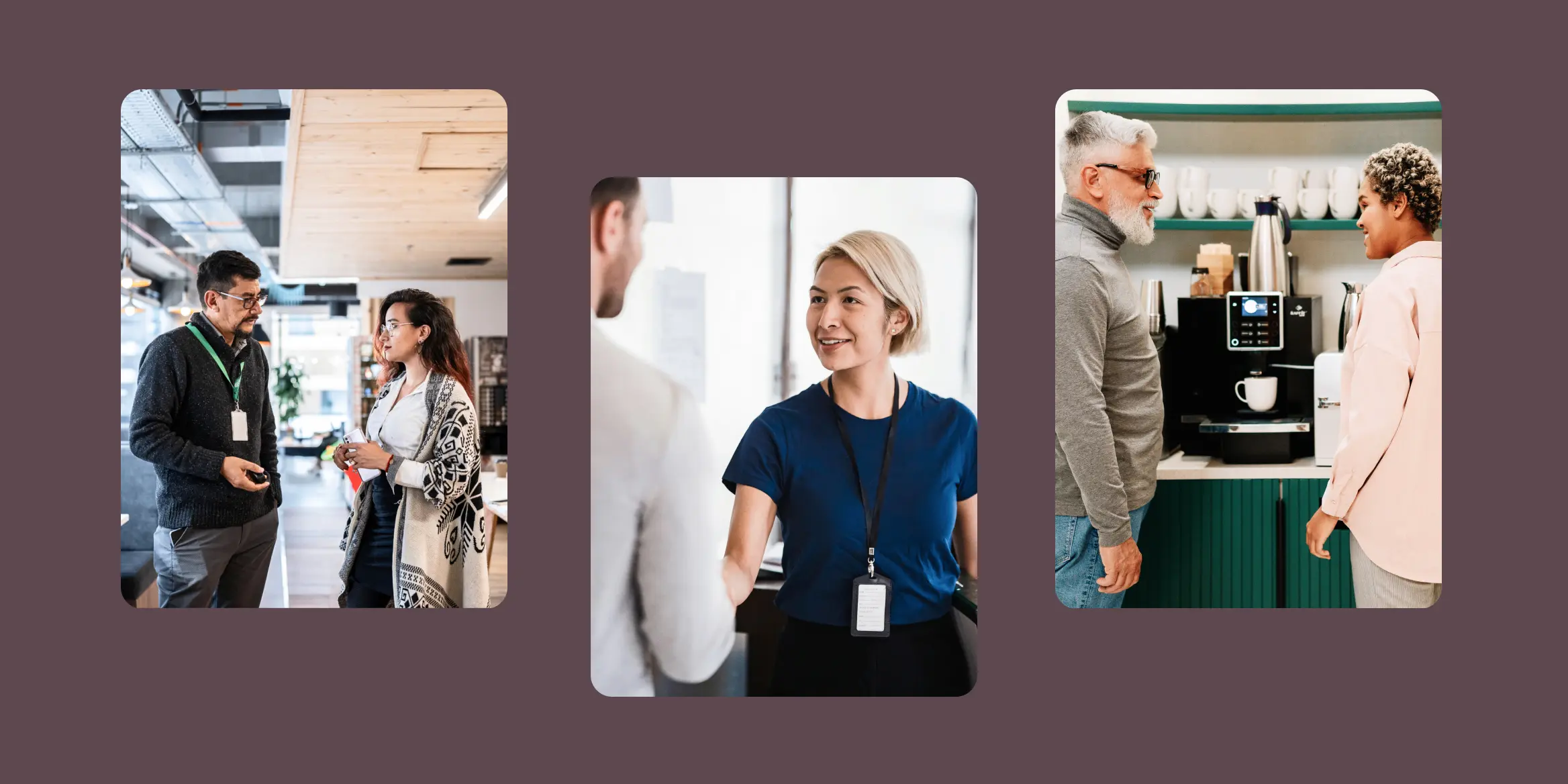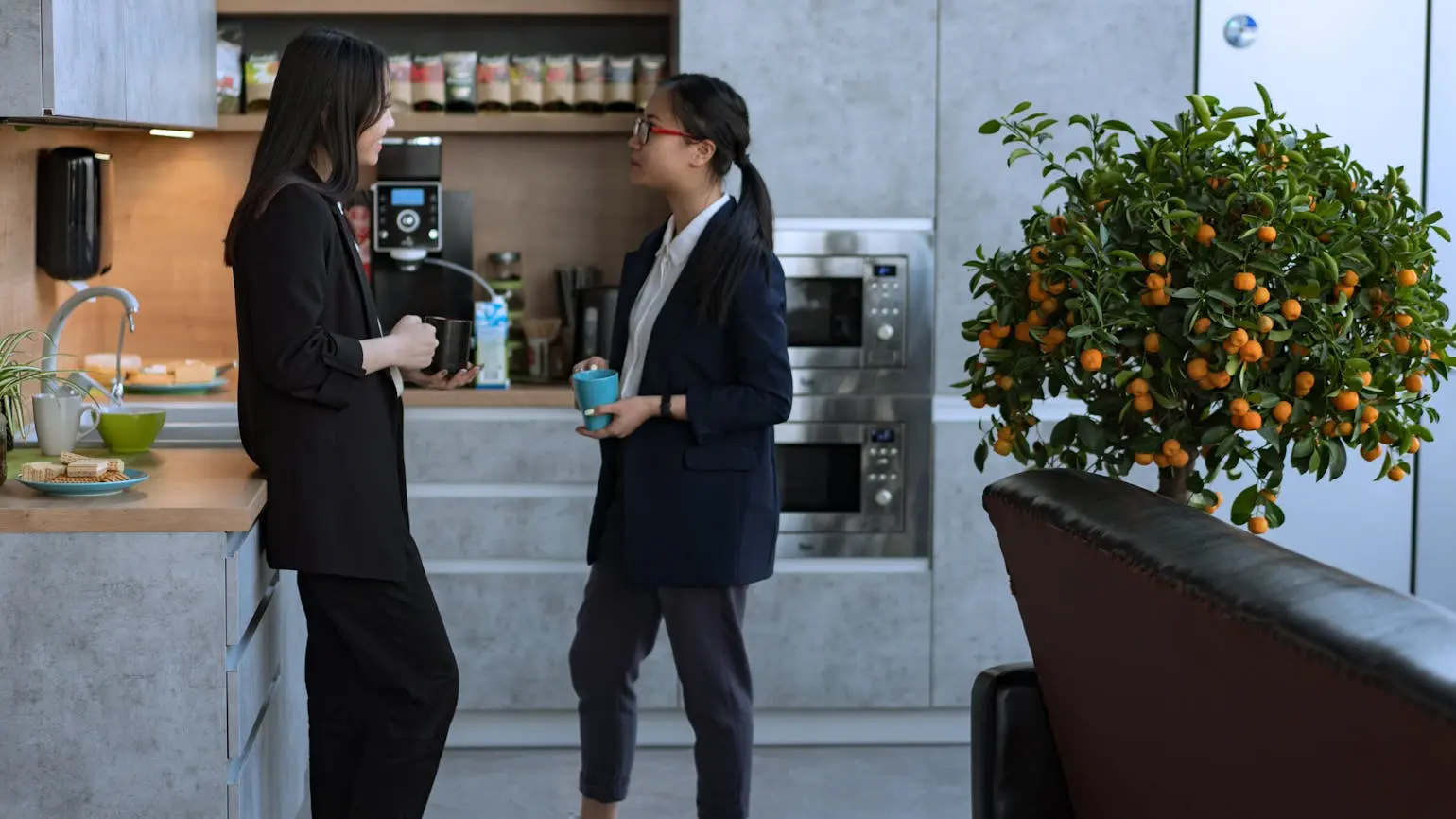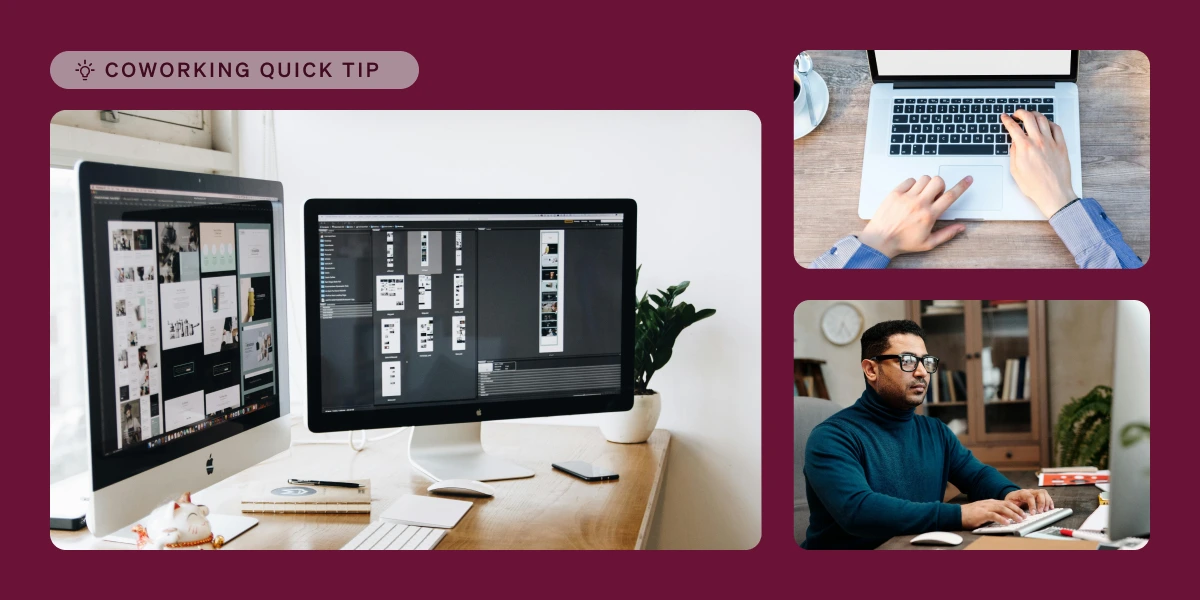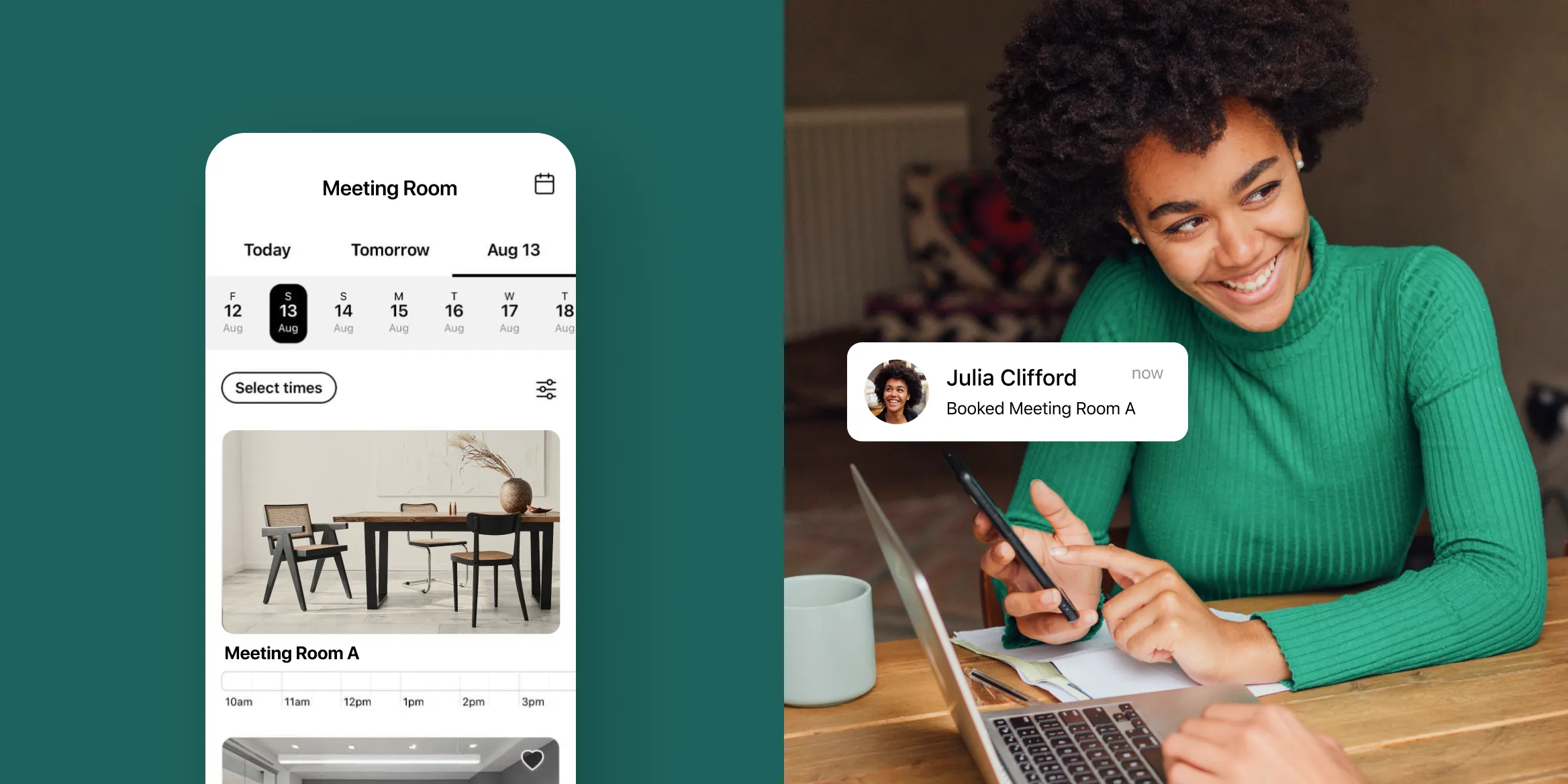Everyone wants to provide a hospitality-first coworking experience, but very few know what that really means – and fewer still can execute it well.
At Optix, we believe in a hospitality-first approach to coworking. We obsess over the user experience (we always have), and we see time and time again that the most successful operators are those with a hospitality mindset.
In the next era of coworking, those who embrace hospitality will be the ones who win.
In this article, we’ll explain the role of hospitality in coworking, what experts have to say about taking a hospitality-driven approach, and some practical advice for how to do more for your members and truly embrace an ethos of hospitality.
What do we mean by hospitality in coworking?
The Webster dictionary defines hospitality as, “hospitable treatment, reception, or disposition” or “the activity or business of providing services to guests in hotels, restaurants, bars, etc.”
When we talk about hospitality in a coworking space, we’re talking about both being hospitable to members – that is being generous, friendly, and welcoming – and the activity of providing services to your members.
Let’s take a look at Highland City Club, a premiere social and coworking club located in Boulder, Colorado to better understand what being hospitality-first really means.
- The grounds of Highland City Club have been painstakingly perfected over decades.
- The space is thoughtfully designed, with a strong attention to detail.
- Lunch is a handcrafted meal of local and seasonal ingredients, courtesy of the in-house chef. When members arrive, they are greeted by name, and regularly treated to thought-provoking keynotes given by speakers with deep expertise on a wide variety of subjects.
Highland City Club cares for their members, and their members show up for them in response. This is a hospitality-first approach.
Learn how Dustin from Highland City Club created an elevated member experience with Optix.
Why is hospitality important to the coworking experience?
When Optix CEO and Founder Kia Rahmani opened his first coworking space over 10 years ago, he wanted to create an experience that went beyond providing desks and chairs. He embraced hospitality as a way of providing value to members, in turn increasing overall retention.
Your members can work from anywhere. They can work from their house, a coffee shop, maybe even a corporate office. For them to work from your coworking space, they have to want to work from your coworking space. And embracing hospitality is one of the best ways to get people to do just that.
Being hospitality-first can help you:
- Improve your member retention rate
- Build loyalty
- Cultivate community
- Create a point of differentiation
Best of all, hospitality can improve your bottom line. According to the DeskMag 2023 State of Coworking report, profitable coworking spaces allocate 50% more of their staff to community and hospitality compared to unprofitable spaces, showing a clear link between profitability and hospitality.
It just may be the missing piece to the coworking profitability puzzle.
How to be more hospitality-driven in your coworking space
In a short video on YouTube, London-based coworking expert Bernie J Mitchell says the relationship between coworking and hospitality is about how you make people welcome. It’s about being genuine, authentic, and really, about how people feel at the end of the day.
With that, let’s dive into a few practical pieces of advice around how to be hospitality-driven.
1. Invest in the little things
Before co-founding a coworking space in Sydney, Australia, James Sledmere operated a cafe and coffee shop for ten years. It was here that he learned the value of creating an experience for people by focusing on the small details.
The smell of coffee, the music you play, and lighting can all impact how someone experiences your space. Though these feel like small things, they make a big impact.
The best part is, these pieces also make up the low-hanging fruit, or things that are easily modifiable whether you’re a space owner or a community manager. Learn how James reached 100% occupancy of his indie space with Optix.
2. Build connections with your community
Connection and community are the heart of coworking. Building genuine, meaningful connections will lend itself well to making people feel welcomed, like they are a part of something bigger than themselves.
Remember your member’s birthday and the name of their pet. Compliment their shoes, stock their favorite drink at the monthly social, and be the ear they can vent to without judgment. You, your community manager, and the rest of your team have the opportunity to change someone’s entire day.
Isn’t the desire to be seen and heard all we want anyways?
3. Hire more of the right kind of people
Your community manager is on the frontline of the hospitality driven experience. The people-facing roles in your business are the ones who will shape how your members feel on a day-to-day basis, so you need to invest in hiring the right people for the role.
We wrote an entire article dedicated to hiring for the community manager position that you can read by clicking on the link above. Here, we’ll share a few of the highlights as it relates to hospitality.
- Invest in training on how to support the emotional and psychological needs of others – we often hear from community managers that they feel like they’re a therapist, and they wish they had more training on this aspect of the job
- Allocate a certain amount of time that community managers should be spending with members each day
- Find someone who matches the energy of your space, and who can effortlessly connect with your community
Tori Taylor, Founder at Bad Company Workspace, says that she’s happy for her community manager to spend her entire shift interacting with members. Member interaction is an essential part of the job, and it’s important to allocate time and space for your team members to engage with the community.
It’s part of what’s led Tori to grow to three locations and maintain above average retention rates, as discussed in our webinar earlier this year. Watch the replay of the webinar here.
4. Leverage technology
Technology and hospitality are sometimes seen as being antagonistic. But that couldn’t be further from the truth.
When implemented thoughtfully, technology can help operators and community managers provide an exceptional experience for their members.
Imagine a new member wants to join your community. He goes to book a desk, but the online experience is clunky, and he ends up emailing your community manager to make the booking. When it comes time to visit your space the following week, the access control system is unreliable and he struggles to open the door. Once inside, he can’t see where he’s sitting without asking the staff onsite because he can’t figure out how to access the web portal to view his booking.
This is an example of technology not working as it should.
Now, let’s imagine a different scenario.
A potential member wants to visit your space. He books a drop-in pass from your Web Widget and immediately receives a confirmation email with all of the information he needs, including how to download your coworking space app. On the day of his booking, he shows up to your space, uses his phone to unlock the door, and is greeted by a friendly community manager who gives him a walk through. Once completed, he books a desk from his phone in just two easy taps.
When technology performs well, it’s the difference between an enthusiastic member and a customer ready to churn, an experience that resonates and one that falls flat. And it’s what Optix is all about.
Nearly 50% of our clients said that the greatest benefit of using Optix was how it enhances their member experience. Learn more about Optix coworking software.
5. Be intentional with your design
1880 Bardo has one of the most beautifully designed coworking spaces around. The furniture is hand crafted and hand selected, the color palette is intentionally curated, and the layout is created to make people feel welcomed and inspired.
At 1880 Bardo, the hospitable experience begins with the design of the space.
How you design your coworking space can influence how your members feel, their ability to connect with one another, the energy of the space, and so much more. It sets the tone for the service you provide and helps you tell the story of a quality experience.
A beautifully designed space, like 1880 Bardo or Highland City Club, is a strong selling point for the community, and it can make for another compelling reason for members to stay.
6. Anticipate the needs of your members
Part of the job of your community manager is to expect the unexpected. One way to do this is to anticipate the needs of your members. Anne Olsen, Community Manager at The Shop, gave a compelling talk on hospitality at the GCUC conference in Salt Lake City this year. It was here that she presented “The Oops Bin”.
The Oops Bin is a container that sits in your coworking space that contains everything someone may need on any given day. This could be:
- Advil
- Bandaids
- Dry shampoo
- Deodorant
- Tide pen
- Gum
All of these pieces are meant to alleviate a potential disaster that a member might face. It’s a small way of showing hospitality and showing up for your members when they need you.
Take a hospitality-first approach
In coworking, a hospitality-first approach lies in creating an environment where members feel genuinely welcomed, valued, and supported.
At Optix, we firmly believe that prioritizing hospitality is not just a choice but a necessary piece of running a flex space business.
From investing in the finer details of ambiance to fostering genuine connections within the community, every aspect contributes to shaping an exceptional coworking experience.
Embodying hospitality at every touchpoint not only enhances member satisfaction but also cultivates loyalty, fosters a sense of belonging, and ultimately drives profitability.
Learn more about Optix and how it can elevate your coworking community.







